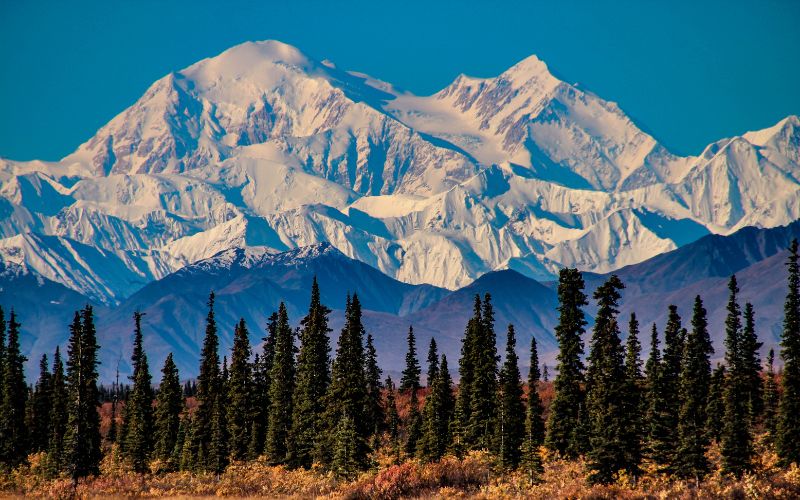
- Details
- By Native News Online Staff
U.S. Sen. Lisa Murkowski (R-Alaska) introduced legislation today to officially recognize North America’s highest peak as Denali, the name given by Alaska’s Koyukon Athabascans. The bill mandates that all references to the mountain in U.S. laws, maps, regulations, and records use the name Denali.
“In Alaska, it’s Denali,” Murkowski said. “Once you see it in person, and take in the majesty of its size and breathe in its cold air, you can understand why the Koyukon Athabascans referred to it as ‘The Great One.’ This isn’t a political issue – Alaskans from every walk of life have long been advocating for this mountain to be recognized by its true name. That’s why today I once again introduced legislation that would officially keep this mountain’s quintessential name, ‘Denali.’”
In 1975, the State of Alaska officially recognized “Denali” as the peak’s name and requested the U.S. Board on Geographic Names to do the same. In 1980, Congress renamed Mount McKinley National Park as Denali National Park and Preserve.
Murkowski has long advocated for the mountain to officially be called “Denali,” having introduced this legislation in three previous Congresses. In 2015, the Department of the Interior returned its official designation to “Denali.” Last month, President Trump signed an executive order titled “Restoring Names That Honor American Greatness,” which directed the Secretary of the Interior to change the name of the mountain to “Mount McKinley.”
Last week, the Alaska State Senate unanimously passed a resolution urging the President, Secretary of the Interior, and U.S. Board on Geographic Names to uphold the name Denali. The Senate approved House Joint Resolution 4, originally introduced by State Representative Maxine Dibert, following its passage in the Alaska State House of Representatives.
U.S. Senator Dan Sullivan (R-Alaska) is an original cosponsor of the legislation.
More Stories Like This
Native News Weekly (August 25, 2024): D.C. BriefsUS Presidents in Their Own Words Concerning American Indians
Federal Judge Orders ICE to Halt Use of Pepper Spray, Arrests of Peaceful Protesters in Twin Cities
Tunica-Biloxi Cultural Leader John D. Barbry Walks On
Next on Native Bidaské: Federal ICE Activity in Minneapolis: Ruth Buffalo’s Perspective
Help us defend tribal sovereignty.
At Native News Online, our mission is rooted in telling the stories that strengthen sovereignty and uplift Indigenous voices — not just at year’s end, but every single day.
Because of your generosity last year, we were able to keep our reporters on the ground in tribal communities, at national gatherings and in the halls of Congress — covering the issues that matter most to Indian Country: sovereignty, culture, education, health and economic opportunity.
That support sustained us through a tough year in 2025. Now, as we look to the year ahead, we need your help right now to ensure warrior journalism remains strong — reporting that defends tribal sovereignty, amplifies Native truth, and holds power accountable.
 The stakes couldn't be higher. Your support keeps Native voices heard, Native stories told and Native sovereignty defended.
The stakes couldn't be higher. Your support keeps Native voices heard, Native stories told and Native sovereignty defended.
Stand with Warrior Journalism today.
Levi Rickert (Potawatomi), Editor & Publisher


